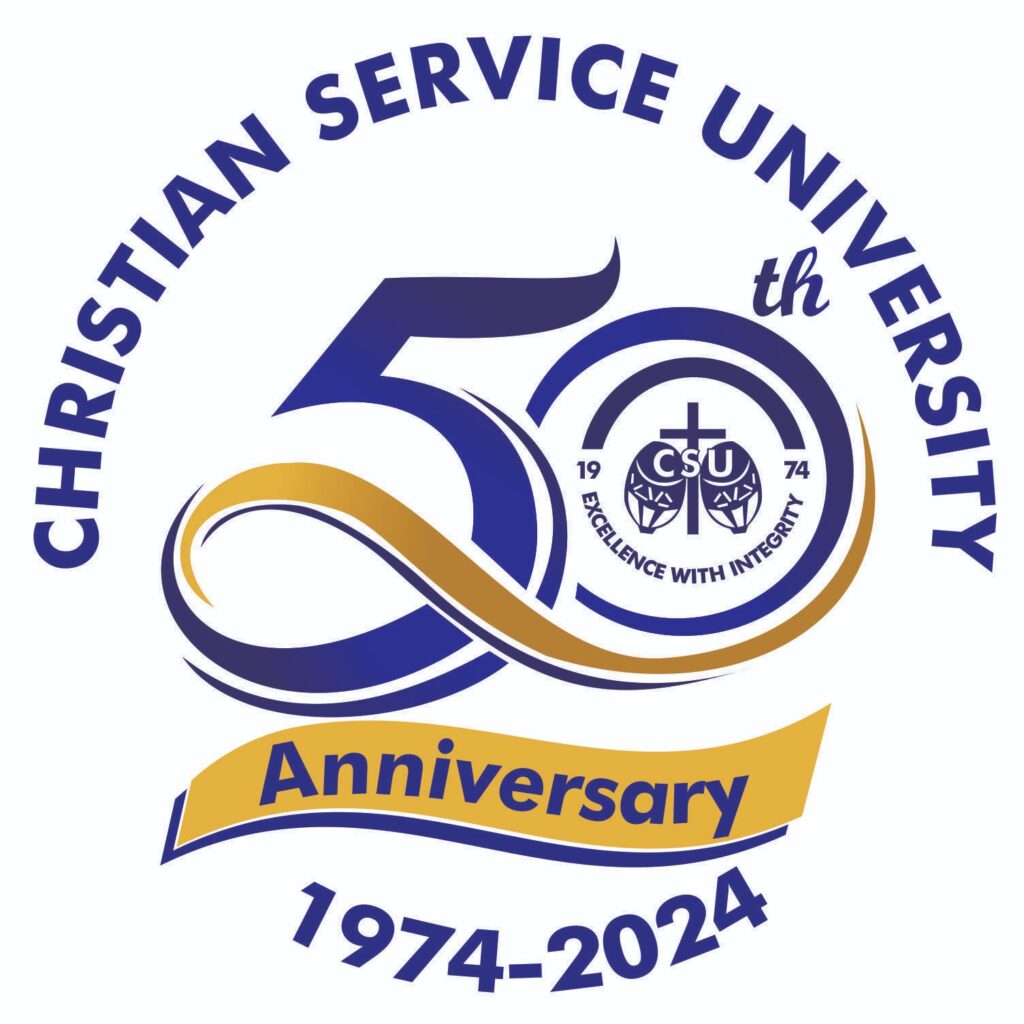Overview
Master of Arts in Christian Ministry with Management
Churches and parachurch organizations in Ghana today face challenges of pluralism and materialism which are associated with the process of modernization and globalization. The situation requires that pastors and other Christian workers become well equipped with theological knowledge and managerial skills in their area of calling in order to minister properly and competently manage the human and financial resources of the growing congregations.
Most churches have Bible schools and colleges, but many of these theological institutions do not have graduate level programmes for Christian ministry that meet the challenges of the leadership and management in the growing churches and parachurchorgranizations. The MA in Christian Ministry with Management programme of Christian Service University College is designed to meet the increasing demand for effective Christian ministry training and competent management in the churches.
The programme combines a biblical approach to Christian ministry with management concepts and principles. The programme design and subjects taught are based on Biblical perspectives, while maintaining standard academic quality from inputs provided by qualified management lecturers. The MA Christian Ministry with Management programme is predominantly taught with limited research.
Programme Objectives
The objectives of the programme are to:
- Deepen the student’s understanding and expression of the Christian faith and ministry;
- To equip students with the skills needed in managing the Christian organization efficiently and effectively.
- To equip pastors and prospective pastors and other Christian leaders with solid theological and ministerial foundation coupled with leadership and well-grounded managerial skills.
Employment Prospects
- The MA Christian Ministry with Management programme is designed to produce cutting-edge graduates for effective ministry as pastors in church and related institutions. The mainline Protestant Churches and Charismatic Churches in Ghana have been the main employers of theological graduates of the University College.
- Those oriented to ministries outside the church would have skills to enable them to take up positions in:
- Bible Schools, Seminaries, Colleges and Universities – as Tutors, Chaplains, Assistant Registrars;
- Parachurch ministries like Scripture Union and Ghana Fellowship of Evangelical Students – as Area/Field Officers and
- Christian NGOs like World Vision International as Project Managers
- Some financial institutions would find the theological graduates real assets.
Admission Requirements
- A good first degree (not below 2nd class lower division) in Theology, Divinity or Religious Studies from an accredited institution.
- A good first degree (not below 2nd class lower division) in fields other than Theology, Divinity or Religious Studies from an accredited institution. Candidates must possess some experience in church work or related ministries, e.g. as church leader / evangelist / Bible teacher / Sunday School teacher / administrator / project officer, etc. A supporting recommendation by the applicant’s church pastor or ministry leader would be required.
- In line with the admission policy of the Theology Department of the University College, all applicants would be required to attend an interview.
Study Programme
The tuition for the programmeisbe covered in two semesters. Students are required to complete a minimum of 15 credit hours and a maximum of 18 per week for each semester’s course work. The period for completion of the whole programme is 12 months (two semesters).
Dissertation
A dissertation of 15,000 words is a requirement of the MA programme, and represents the culmination of the student’s learning experience. A dissertation proposal must be submitted at the beginning of the second semester. It requires the student to frame and negotiate a research question, to select and use appropriate methodologies and primary and secondary sources to relate this to current academic debate to arrive at an appropriate and clear overall structure and argument and to present his/her findings in writing in an academically responsible and acceptable fashion.


